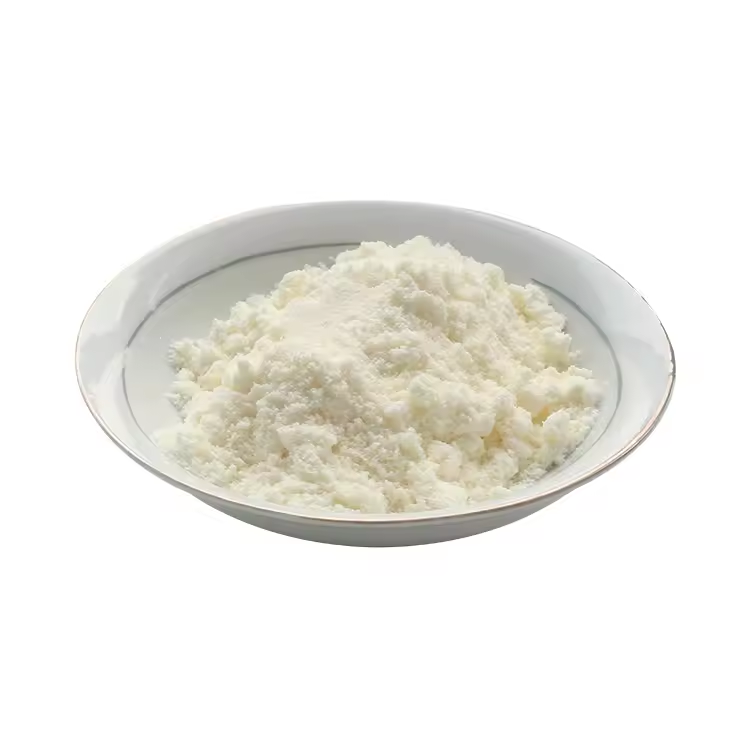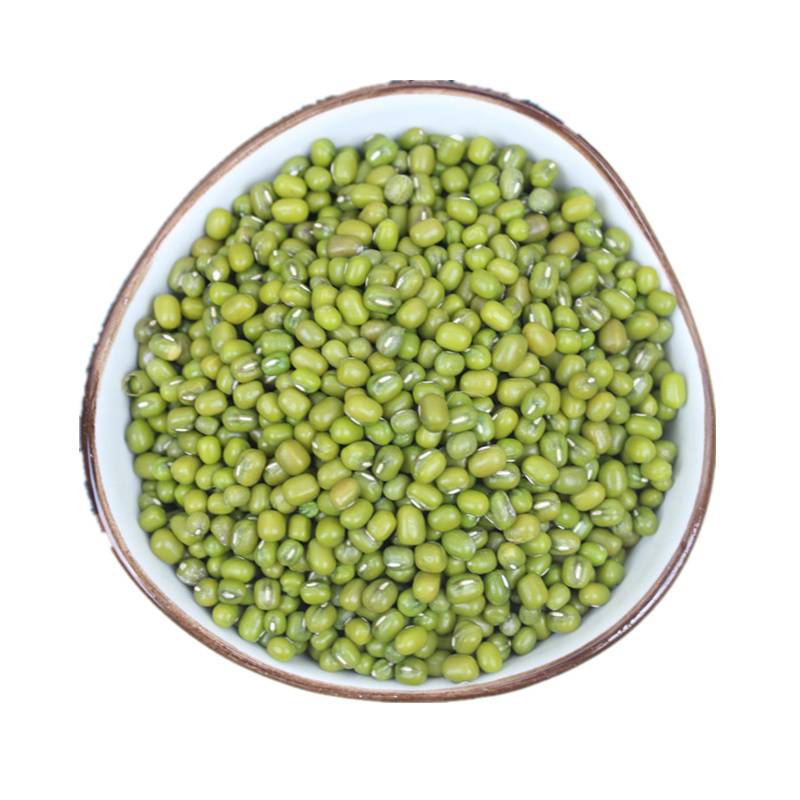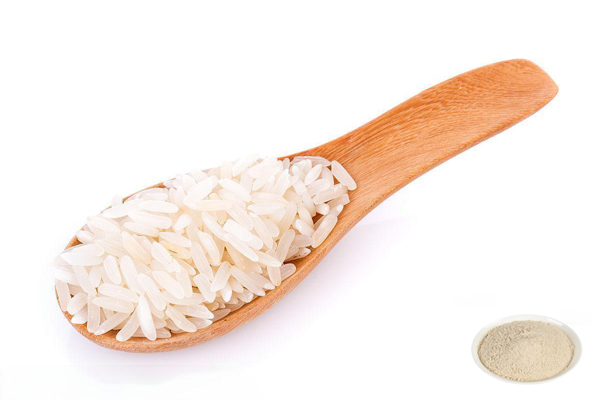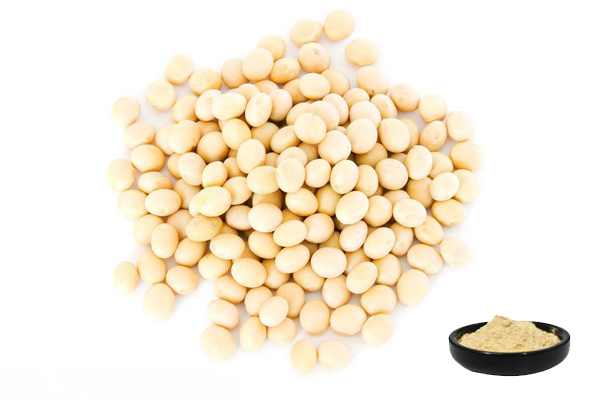Mung Bean Protein Powder 80%
Source:Mung Bean
Active Ingredients:Mung Bean Protein
Assay:80%
Testing Method:Kjeldahl Determination
Appearance:Milky White Fine Powder
Pesticide Residue:Comply with (EC) No 396/2005 Standard
- Description
- Data Sheet
- Certificate
-
What is Mung Bean Protein Powder?
Mung Bean Protein Powder is a plant protein powder made from mung bean seeds, refined by pasteurization, spray drying and other processes.Mung bean protein contains globulin, gluten, clear protein and alcohol soluble protein, with globulin and clear protein having the highest content, and the amino acid pattern of clear protein is close to that of the human body. Mung bean protein has various amino acids, including lysine, isoleucine, leucine, methionine, cysteine, phenylalanine, threonine and valine. It is a high quality natural plant protein.
Mung Bean Protein Powder supplied by Green Spring Technology is sourced from high quality organic mung beans produced in Northeast China, which is rich in 18 amino acids required by the human body, nutritionally balanced, rich in lysine, low-fat, sugar-free, cholesterol-free and easy to absorb. It has good water absorption, emulsification and gel properties, and has been used in various food processing.
Established in 2000, Green Spring Technology is committed to providing customers with natural, safe, organic plant extracts. We have a rigorous internal quality control process and organize production following ISO, HACCP, and other quality standards. Green Spring has established a perfect traceability system, all products can be traced. Green Spring has obtained many certifications such as Halal, Kosher, COSMOS, BRC, IFS, FDA, ISO, and so on. Authoritative third-party test reports are available.
Specification:
Product Name
Mung Bean Protein Powder
Latin Name
Vigna radiata (L.) Wilczek
Source
Mung Bean
Active Ingredients
Mung Bean Protein
Specification
80%
Testing Method
Kjeldahl Determination
Appearance
Milky White Fine Powder
Pesticide Residue
Comply with (EC) No 396/2005 Standard
Regulation:
It conforms to EU regulations.
Looking for a Quotation?Benefits:
Boosting Immunity
In today's society, immunity is at the forefront of people's health claims. Proteins are an important component of immune-boosting substances. Through an experiment on the relationship between mung bean protein and the immunity of mice, it was found that mung bean protein can prolong the survival time of mice in normobaric hypoxia, promote the phagocytosis of their lymphocytes, and then improve the phagocytosis of their macrophages, which is deduced to be that mung bean protein can promote the enhancement of the immunity of the organism, and enhance the quality of the human body.
Mung bean procyclic proteins obtained by isolation and purification using ion exchange chromatography have strong anti-plant pathogenic fungal activity. Mung bean polypeptide can significantly prolong the survival time of mice in normobaric hypoxia and the survival time after nitrite poisoning; it can improve the proliferative force of mouse lymphocytes, the number of antibody-producing cells in the spleen, the hemolytic value of half and the phagocytosis ability of macrophage cells, to improve the immunity of mice. Adding mung bean polypeptide to the sports drink fed to mice can make the liver glycogen in the body of mice increase, and make the accumulation of blood lactic acid inhibited, mung bean polypeptide can improve the immunity of animals and even the human body.
Antioxidant
The antioxidant capacity of the organism is closely related to disease and aging, and antioxidant is also a basic requirement for people who expect to maintain good health. Comparing the proteins from numerous sources, mung bean protein shows better antioxidant properties. Mung bean protein, when broken down into amino acids in the body, has a considerable free radical scavenging capacity of 70 percent, which is 25 percent higher than proteins from rice sources. The study further showed that as the breakdown of mung bean protein deepened, its free radical scavenging capacity further increased.
Blood Pressure Control
Numerous studies have shown that mung bean polypeptide can significantly inhibit the activity of the converting enzyme ACE. Gavage experiments with mung bean polypeptide on spontaneously hypertensive mice revealed a significant decrease in the systolic blood pressure of the heart of the mice. The inhibition rate of ACE was obtained as high as 89.5% by reverse high-performance liquid chromatography (RP-HPLC) using Alcalase 2.4L alkaline protease as a hydrolase. The high-activity products separated by RP-HPLC were sequenced, resulting in three peptide sequences with the highest matching rate, and the sequences were FLVNPDDNENL, FLVNPDDNENLRII, and KDNVISEIPTEVLDL, respectively. compared with the peanut and rice isolate proteins Alcalase enzyme enzymatic hydrolysate, the mung bean proteins enzyme hydrolysate substance had a stronger hypotensive effect.
Applications:
In the Food Field:
Mung bean protein powder has a wide range of applications in the food industry due to its unique nutritional value and functional properties. Its high content of protein, low fat, low cholesterol, and good solubility, gelation, and emulsification properties make mung bean protein powder play an important role in food manufacturing. In meat processing, mung bean protein powder can be used as a natural thickener and stabilizer to improve the water-holding properties, texture, and nutritional value of meat products. Its high protein content can improve the texture and flavor of meat products, and its low fat and low cholesterol properties also meet the demands of a modern healthy diet.
In dairy processing, mung bean protein powder can be used as a raw material to replace animal protein in the production of a variety of dairy products, such as soya milk, yoghurt, ice cream, etc. The addition of mung bean protein not only enriches the nutritional content of dairy products but also gives them a unique sense and flavour. In the processing of pasta products, mung bean protein powder can also be used as a natural improver to increase the gluten and elasticity of pasta products, and improve their sense and nutritional value. In bakery products, mung bean protein powder can be used as a natural leavening agent to promote the fermentation and expansion of the dough, so that the baked goods are soft and tasty.
-
Download
Mung Bean Protein Powder 80% COA


 English
English French
French Spanish
Spanish Russian
Russian Korean
Korean Japanese
Japanese










